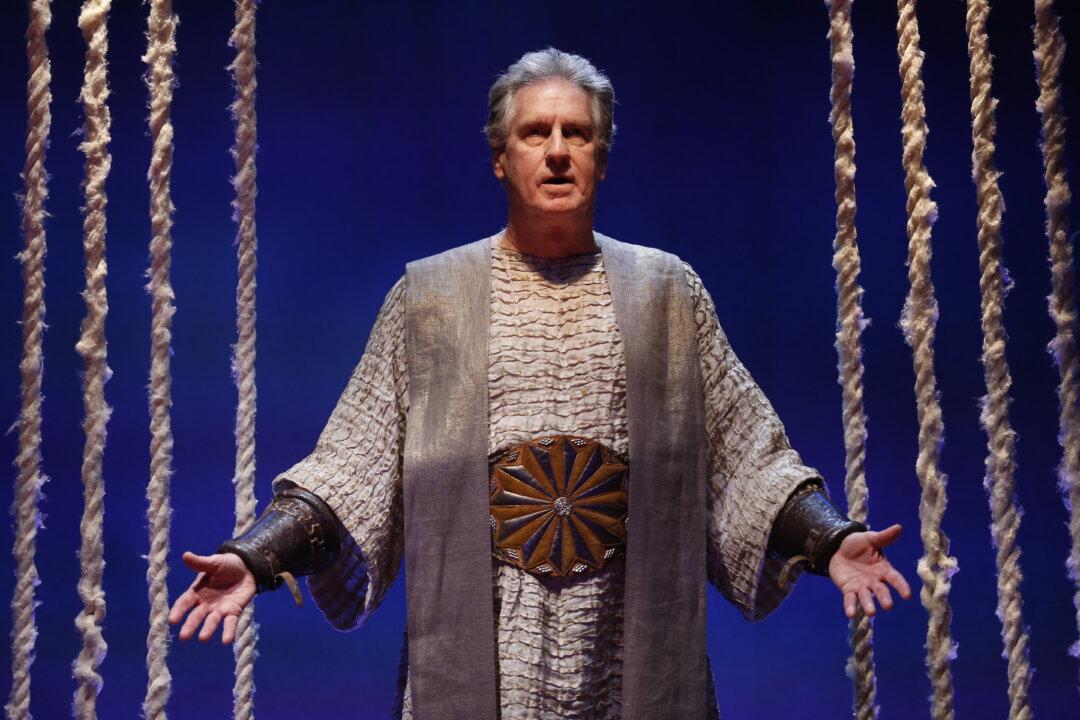NEW YORK—As single-minded King Creon of Thebes in ancient Greece puts it, “If you’re not with me, you’re against me.” This is a line from Irish Nobel Laureate poet Seamus Heaney’s adaptation of Sophocles’s “Antigone,” now playing at The Irish Repertory Theatre.
There has been civil war in Thebes, resulting in the death of two of Antigone’s brothers, on opposing sides, each killing the other. King Creon (Paul O'Brien) orders that Eteocles, loyal to the state, be given a proper burial. But Polyneices must be left unburied, out in the open desert to be eaten as carrion, the deepest of insults to the dead.
Tragedy will ensue due to a stubborn mind that permits no flexibility.





